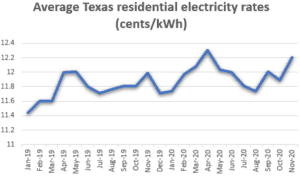A vision of the end of the century on the Mexican family, in which the father decides to return to the home he had abandoned and finds himself confronted with a whirlwind of personal problems with each member of the family. In primewire you can have a perfect choice now for the best of Mexican films.

The Different Journey
In 1977 Arturo Ripstein filmed Lecumberri, el Palacio Negro The Black Palace, a documentary about the famous and fearsome prison in Mexico City. Thirty years later, in Los héroes y el Tiempo Heroes and Time, 2005, Ripstein interviews three of the four political prisoners who appeared in this documentary. The same year, other filmmakers tell the stories of various social movements and their leaders. Gerardo Tort films La guerrilla y la esperanza: Lucio Cabañas, a documentary on the legendary guerrilla leader. It was also in 2005 that it came out into the open (but with limited distribution) Seguir siendo (Continue to be), by Emiliano Altuna, who tells the story of the Cerezo brothers, son of a family of guerrillas unjustly taken prisoner in August 2001. More recently, in 2008, Maricarmen de Lara films Voces silenciadas (Voices suffocated), in which she shows by what ways freedom of expression is hampered in Mexico.
Intrusive movement
This intrusive movement of speaking, in which traditional characters are replaced by others, is also characteristic of the genres of fiction. Contemporary Mexican cinema is moving away from the expected portrait of the family as an eternal source of strength and wisdom. The case that best illustrates this point is Crónica de un Desayuno (Chronicle of a breakfast, 1999, by Benjamín Cann), where the dysfunctional is taken to the extreme just take a look at the storyline of the film: Nothing like family to type where it hurts. There are many films of this style, films which present adolescents in conflict, whose adventures emanate from family breakdown: Temporada de Patos (Mexican Kids, Fernando Eimbcke, 2004), Voy a explotar (I will explode, Gerardo Naranjo, 2008), parents whose desire for expiation corrupts the lives of their children: Desierto Adentro ( Inner Desert, Rodrigo Plá, 2008), the form of affective relationships in communities never explored before by the cinematographic camera: Corazón del Tiempo ( The Heart of Time, Alberto Cortés, 2009).
The change of political regime
Mexico has allowed his cinema to turn to the past: what he sees are the errors and consequences of decision-making attributed to the old system, and of which the new considers itself as a simple heir. On the one hand, it depicts the habits and customs of an indigenous Zapatista society (unpublished fact, despite fifteen years of official insurrection and more than thirty years of insurrectional gestation). On the other hand, the film tells the story of an insurgent who falls in love with a civilian engaged to another man. This event defeats the dominant order: customs must be followed, but at what cost? The most interesting of the story is that, both in respect and in failure, the desire of the male character is privileged over that of the woman. It is she who speaks here and opposes the pretension of the community to want to decide on its future. The protagonist rebels against an order that is already rebellious in itself.




